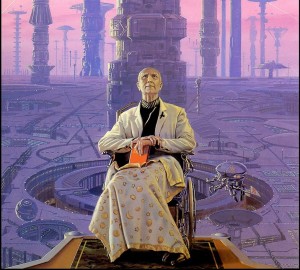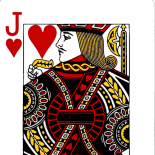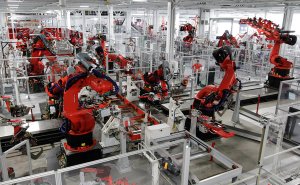Foundation, by Isaac Asimov, and the downfall of humanity
Isaac Asimov is another one of those “required to read” authors that I have now ticked off my list. After having read his novel “Foundation” I’m definitely beginning to see why he was on there. Foundation is an epic telling of the fall of the great human Galactic Empire. Set many millennia into the future, a man called Hari Seldon predicts, through the science of “psychohistory” that the Galactic Empire will fall, and a long period of chaos and barbarism will follow. Psychohistory is the science of mathematical sociology – allowing one to predict and influence the future of any large scale population through historical reference and mathematical determination. A very interesting field, and even though fictional, not entirely implausible. Using the very same methods that predicted the fall, Seldon sets in motion a plan to create a new, second empire – an inevitable consequence, but achieved in a thousand years, instead of thirty thousand – thereby lessening the negative impact on human history. The book then describes four additional pivotal historical events over the coming centuries, giving the reader an intimate knowledge of the intricate interstellar politics that form the base for the future of humanity.

Hari Seldon, as imagined by artist Michael Whelan
Throughout the story, Asimov explores a number of fascinating theories and events that, as in all good science fiction, can be related to our present world. One of which is the fall of the Galactic Empire. The reason for it’s fall is not simply, as one might expect, overextension and ridiculous political ambition. What allows the fringe worlds of the galaxy to break away and become independent is the stagnation of progress. No one ever learns anything new, instead they only ruminate over existing knowledge, thus bringing humanity to a standstill. One character in particular is described as an experienced archeologist, when in fact he is so in theory only – having read a lot of books and reports on archeology – never once having actually excavated or investigated anything himself. When Hari Seldon in his wisdom creates the “Foundation” – a new, isolated settlement on the edge of the galaxy – they quickly have to adapt and expand on their knowledge to survive. This gives them a technological edge towards their neighbours as well as the Empire itself, and simultaneously advances the human race.
Could this ever happen to us? Could our technology run away from us in such a way that we seize to understand it? In a few hundred years, will there be anyone who actually knows how a microprocessor works, or will this knowledge be forever stored in the databanks of production robots? What if those robots break? Could we advance ourselves so far, and obscure technological knowledge so much, that we in the end have to return to a pre-technological state? Once our nuclear power plants have run automatically, without a hitch, for a thousand years, who will repair them when they break down? I find this premise to be highly interesting, and even though it’s not nearly relevant yet, it is, like so many other theories and situations that Asimov presents in his book, quite concievable. This lends an aura of credibility and believability to his work and lets you immerse yourself in the vision of the future even more because of it. It might not be the lightest book you have ever read, and sometimes the sheer number of characters with peculiar names can be a bit confusing, but it is an intriguing, exciting, and thought-provoking story that I highly recommend to all readers of science fiction!


I’ve always intended to read this, but haven’t yet. I found a list here http://kaedrin.com/fun/asimov/aguide.html in which Issac Asimov lays out in which order the fifteen books he tied together should be read. I’m going to re-read I,Robot starting today and go from there…